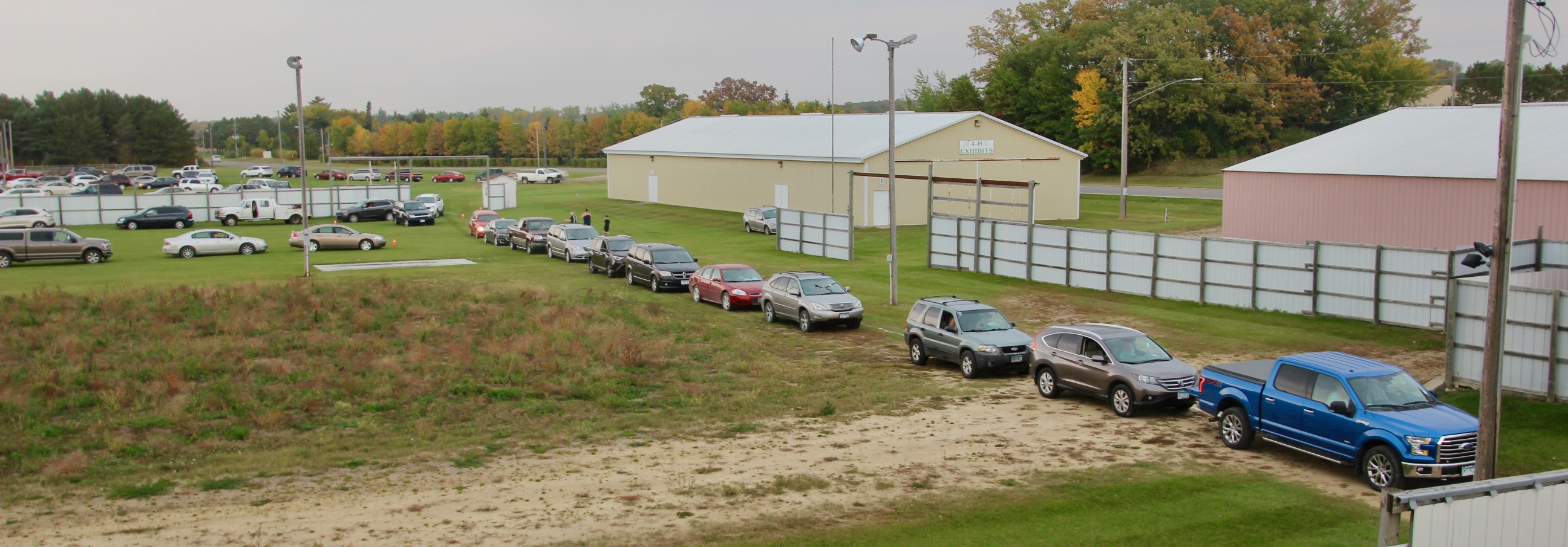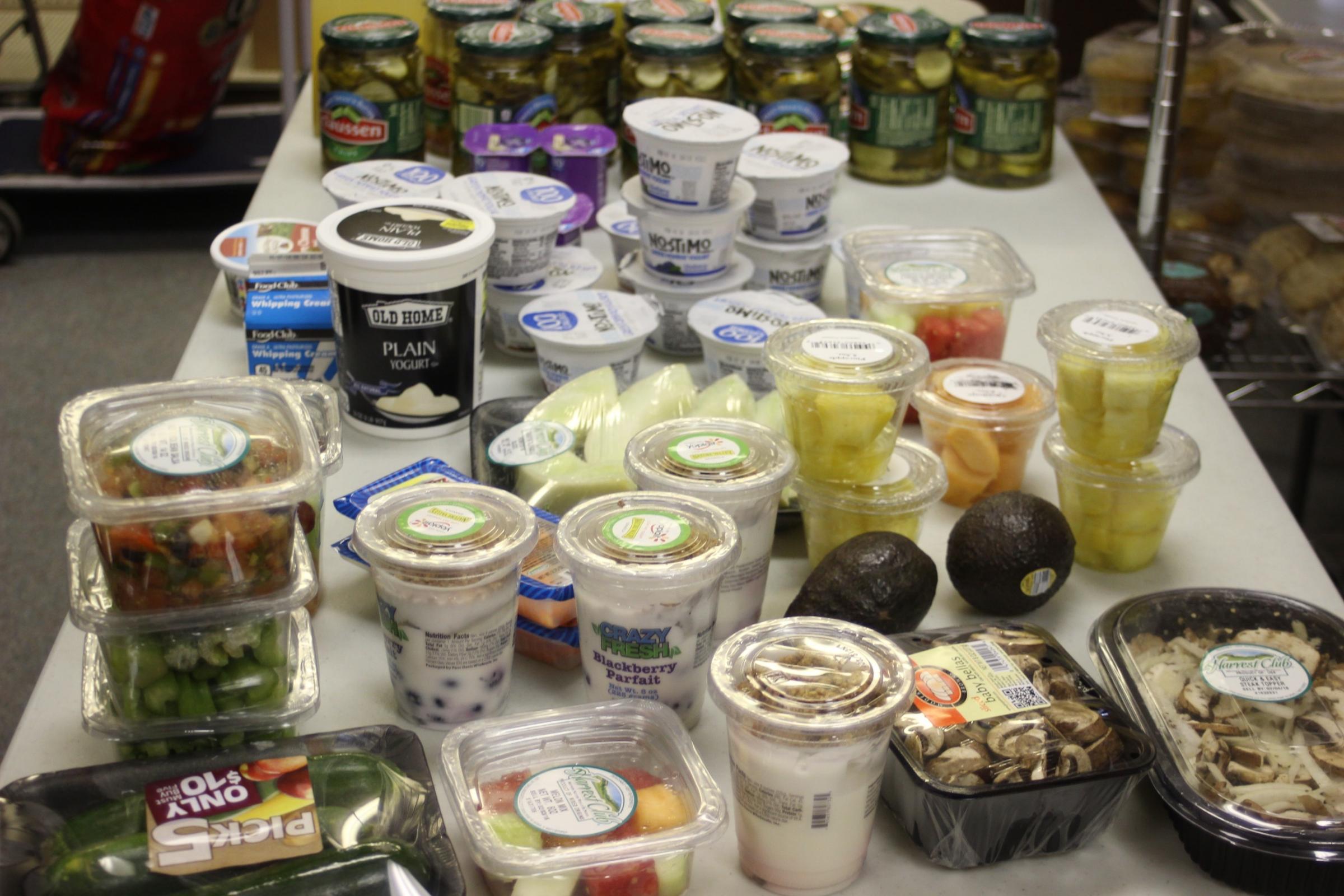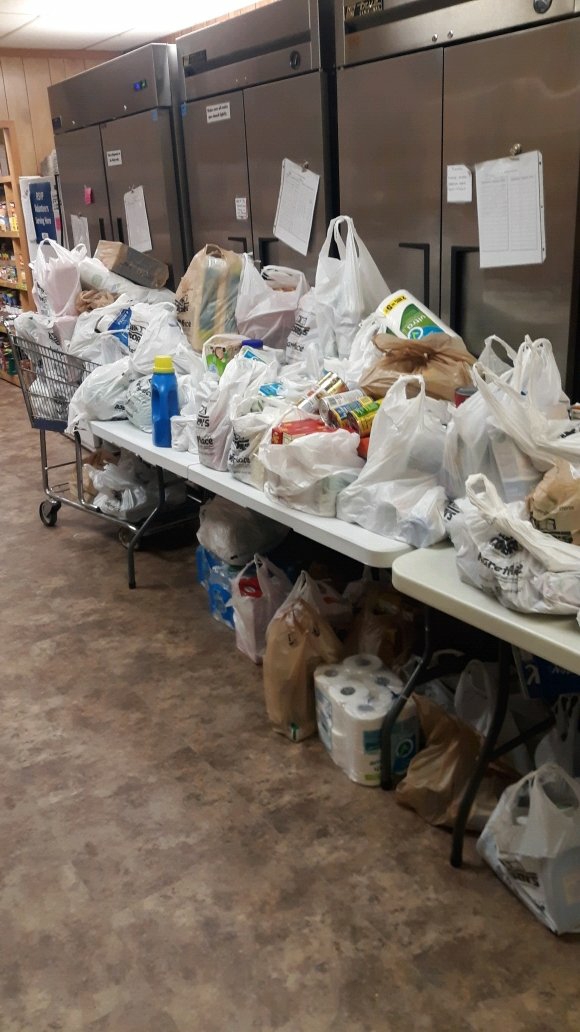The Spirit of the Prairie: Generosity in Todd County
Friday, December 11, 2020

On a beautiful fall evening in late September hundreds of cars rolled into the Todd County Fairgrounds to take part in a “food drop,” a euphemism for a mass food distribution. It’s an all too familiar scene played out not only here, but across the country. The event, sponsored by the Food Shelf, and Todd County Health and Human Services, a team of volunteers served an estimated 570 households with boxes of dairy, product, and meat, no questions asked.
Community involvement in this event, along with similar food distributions that take place in church parking lots, inside of local food shelves, are not just an act of generosity, they point to a growing need that has exploded nationwide in light of the coronavirus pandemic. “An estimated 12% of U.S. adults have recently experienced some type of food shortage, according to recent research,” wrote Lorie Konish of CNBC on Thanksgiving Day, adding, “Households that are more likely to be short on food include those with children.”
Kris Mechels, volunteer manager of the Long Prairie Emergency Food Pantry, says the needs of the community have grown tremendously since the food shelf opened in 1982 with a contribution of a few canned items. Their current location in an old downtown movie theater rivals the look of the local grocery store, without all the amenities. Kris counts their need and growth based on the number of times the pantry has expanded by knocking out walls to make more space in the old building.
 Long Prairie provides relief to a cluster of seven small towns in the lower half of Todd County says Mechels. “We usually serve about 80 to 100 families per month,” she says, as part of a loose coalition of area food pantries.
Long Prairie provides relief to a cluster of seven small towns in the lower half of Todd County says Mechels. “We usually serve about 80 to 100 families per month,” she says, as part of a loose coalition of area food pantries.
Clientele of the food shelf typically receive canned and packaged goods, including hygiene products like toilet paper, shampoo, toothpaste and soap, as well as laundry and dish detergent. In addition to donated items, Second Harvest Heartland contributes milk, eggs, butter, cheese and canned goods. “We have food rescue items from Coborns, our grocery store and Walmart, which is in Sauk Centre. We get food rescue from them, which is actually about half the groceries that clientele receive; they get three to four big boxes of food once a month.” Also donated lately is a lot of hamburger; a very important item that isn’t cheap to buy, even through Second Harvest. All meat donations must be processed through a licensed butcher or processor.
“We’re 100% not for profit, and we rely upon donations and charity,” says Mechels. “All of the area churches do food drives, at least once a year, the post office does a food drive once a year, and we get a lot of food from them.” While food donations are always welcomed and needed, Mechels says that through a partnership with Second Harvest Heartland, they can generate “5 to 10 times more groceries” from monetary contributions than with direct donations.
There is no face when it comes to poverty, when it comes to need, except perhaps, the face of generosity. Long Prairie has a long history of generosity and commitment serving the needs of our friends, our neighbors; our community. It’s no surprise that year has seen an increase in need during the pandemic but it has also brought out the best in people as volunteers stepped up to help distribute food and necessities throughout the area, often at personal risk, to help. One of the bright spots has been the involvement of Lutheran Social Service in the delivery of pre-made meals throughout Todd County, and the state of Minnesota at large.
 Leila (lee eye lah) Oliver, a life-long resident of Todd County, is the site coordinator for the Hilltop Regional Kitchen in Eagle Bend. Hilltop’s kitchen staff of 8 to 10 prepare meals throughout the week for Meals on Wheels and other meal programs under contract with Lutheran Social Service. In October, LSS received a grant from the Minnesota Department of Education to provide 70,000 meals throughout the state, 17,000 destined for Todd County households. By the time the grant runs out at the end of December that number will have increased to around 20,000. That’s a lot of meals! How do they do it? With volunteers and a mission-oriented approach.
Leila (lee eye lah) Oliver, a life-long resident of Todd County, is the site coordinator for the Hilltop Regional Kitchen in Eagle Bend. Hilltop’s kitchen staff of 8 to 10 prepare meals throughout the week for Meals on Wheels and other meal programs under contract with Lutheran Social Service. In October, LSS received a grant from the Minnesota Department of Education to provide 70,000 meals throughout the state, 17,000 destined for Todd County households. By the time the grant runs out at the end of December that number will have increased to around 20,000. That’s a lot of meals! How do they do it? With volunteers and a mission-oriented approach.
Vanessa Berg, Assistant Director and Registered Dietitian at LSS Meals of MN recalled a brief moment of panic when they were given the numbers versus the time frame, but she said that quickly disappeared. “As Assistant Director of the program, I get to see a big view of how we are affecting Minnesota as a whole,” says Berg. “It's the most rewarding job I've ever had. I think every single employee has a little bit of that passion and that desire to do God's work and to serve. That's what brings people together and keeps our program going.”
“There were five kitchens working on getting these meals out to people,” says Hilltop manager Oliver. “What these people received were five meals, three of them were frozen, and two of them were like a bag lunch with a sandwich, and then also some snacks.” The food is distributed at a variety of places, basically wherever they could find space to accommodate large groups. “We would show up for the event, lined up through either churches or senior center centers or food shelves, and people would come through and we would hand them a bag per person in their household,” explained Oliver. “There was no age factor in this. They could be seniors. It also could be families. With the food shortage, the “food insecurity” that we have throughout the nation right now it had to be left to anybody who wanted food. We asked no questions. We did see though that the majority of the people that we did serve were seniors. were older people.”

Lutheran Social Service takes advantage of these wide-reaching programs to provide information on how to sign up for other services. “We realized that what we're doing right now is somewhat of, you could call it a band aid approach, providing the meals today,” says Berg, “but we're also distributing information on how to get signed up for meal services and for benefits through the state through the Supplemental Nutrition Assistance Program, or SNAP, the old food stamp program.”
In the coming weeks there are more scheduled food events, culminating on December 30th with a distribution at Peace United Church in Long Prairie. “We've partnered up with Prairie Packing,” says Oliver, “so when we hand out our five meals, they're also going to give two pounds of hamburger.” In addition, the Outreach Program of Brainerd Lakes will have dry goods packages available as well. have some packages of dry goods like macaroni and cheese ready for this last giveaway. “I am really excited about that one,” says Oliver. “I'm just hoping we don't have a blizzard.”
UPCOMING FOOD DROPS:
Tuesday, December 22, 4-6 PM, St. John the Baptist Catholic Church, Swanville
100 free meals, participants must pre-register to receive 320-547-2920
Wednesday, December 23, 4-6 PM, Eagle Bend United Methodist Church, Eagle Bend
100 free meals, participants must pre-register to receive 218-738-6312
Wednesday, December 30, 4:30-6 PM, Peace United Church, Long Prairie
325 free meals, participants must pre-register to receive 218-738-5563
Category: News







